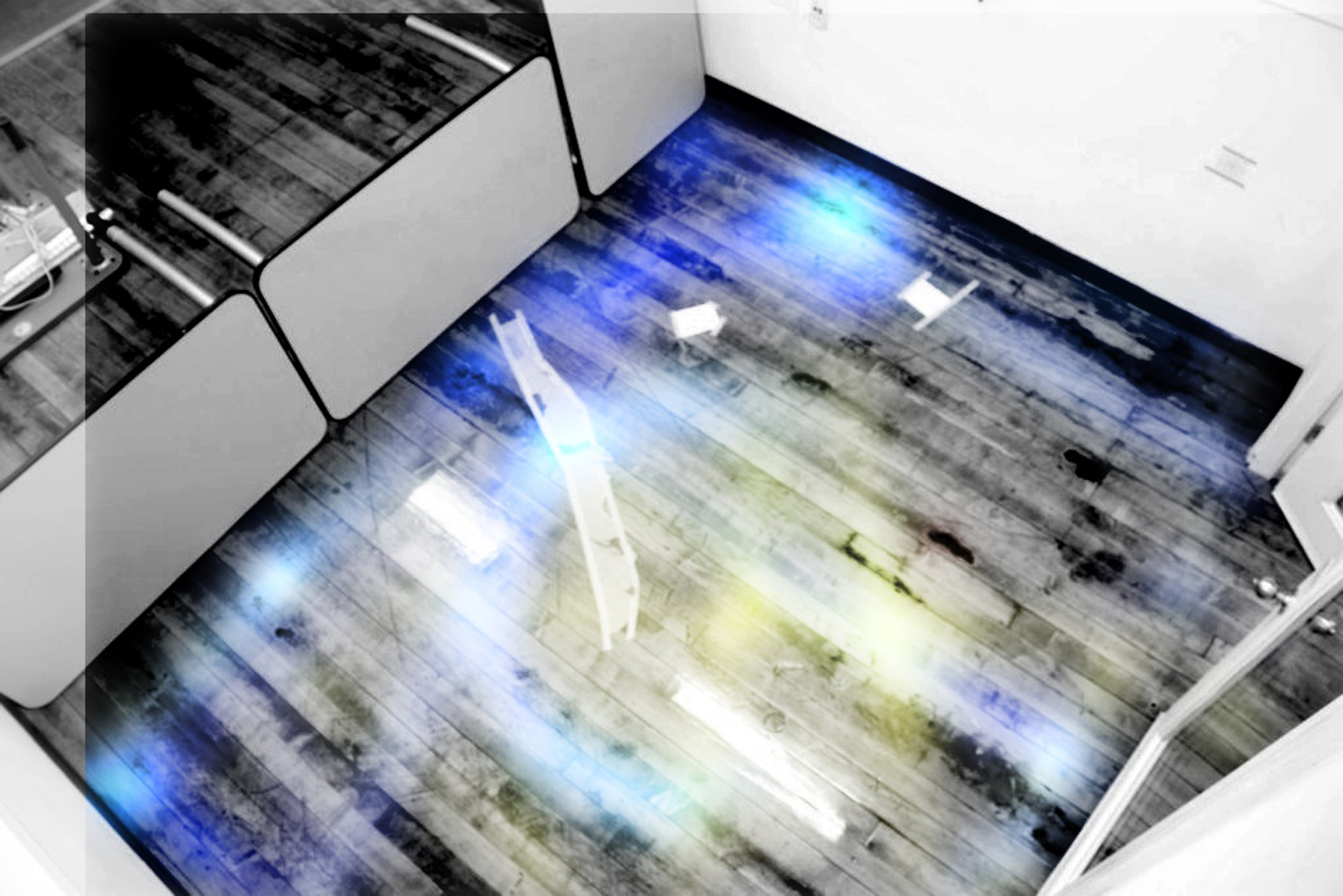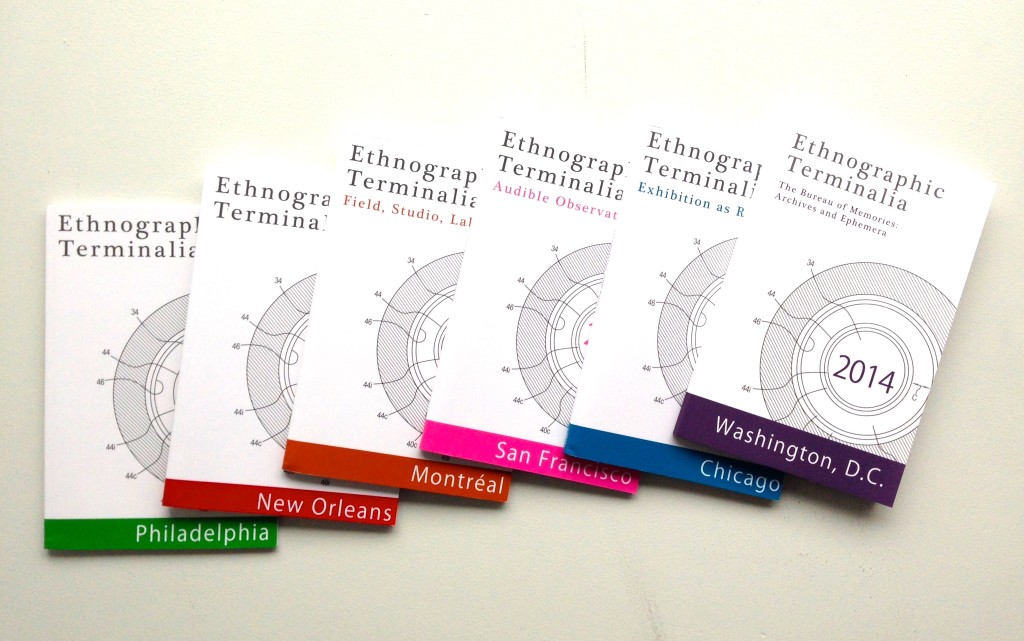Making Sense: Lab as Gallery as Field
Site-specific installation
2011
Artist Statement
Public Lab is about turning our everyday spaces into sites of investigation and knowledge production using everyday tools. For this piece, we turn the gallery site into a site of investigation blending the field, lab, and gallery spaces to create knowledge about the composition of the environment, the materials within it, and the audience. Using two of our low cost, Do-It-Yourself tools, the spectrometer and Roomba indoor air pollutant mapper, we experiment with making the gallery a lab space where the audience can learn how to use these tools and collaboratively generate real-time data about their environment. Making Sense queries and introduces new modes of participatory science and knowledge production to encourage engagement with and transformation of our social and physical environments. Roomba Indoor Air Quality Monitoring: Roomba–the room cleaning vacuum–is programmed to travel all around a room once it is left to roam. We have attached a sensor and light system to second hand Roombas, resulting in a tool to assess sources of airborne pollution throughout an indoor space. During Ethnographic Terminalia, we will release Roomba to map and study the gallery space, generating data rich images on indoor air pollutants such as Formaldehyde.
Spectrometer: A spectrometer is a device that splits light into the various colors–the spectrum–it is actually composed of, which we cannot otherwise distinguish with the naked eye. Chemists typically use this tool to identify the spectral “fingerprint” of environmental contaminates. At the exhibition we will teach participants to build their own spectrometers and use our online tools for identifying spectra and comparing them to known contaminants. This tool allows participants to take the lab with them once they leave the gallery and begin investigating other environments important to them as well as participate in the online Public Lab community.
Biography
The Public Laboratory for Open Technology and Science (PLOTS) is a community which develops and applies open-source tools to environmental exploration and investigation. By democratizing inexpensive and accessible “Do-It-Yourself” techniques, Public Laboratory creates a collaborative network of practitioners who actively re-imagine the human relationship with the environment.
The core PLOTS program is focused on “civic science” in which we research open source hardware and software tools and methods to generate knowledge and share data about community environmental health. Our goal is to increase the ability of underserved communities to identify, redress, remediate, and create awareness and accountability around environmental concerns. PLOTS achieves this by providing online and offline training, education and support, and by focusing on locally-relevant outcomes that emphasize human capacity and understanding.
publiclaboratory.org; Twitter handle: PublicLab
Liz Barry: Director of Urban Environments; Director of TreeKIT; Faculty at Parsons, Pratt, Columbia; Urban designer and landscape architect; SOM 2007-09.
Shannon Dosemagen: Director of Community Engagement, Education and Outreach
Researcher and Ethnographer; Louisiana State University Anthropology and Geography Dept.; Oil Spill Response Coordinator, Louisiana Bucket Brigade 2009-11; Grassroots Mapping Gulf Coast Coordinator; M.S. Anthropology 2009.
Adam Griffith: Director of Science and Coastal Environments. Director of Beachcare.org through the Program for the Study of Developed Shorelines at Western Carolina University; Teach for America, 1999-2001
Stewart Long: Director of Geography and Data GonzoEarth mapping services; Grassroots Mapping Gulf Coast map processing & publication lead
Mathew Lippincott: Director of Production and Production in Education
Artist and Designer; Co-Founder of Cloacina; Partner, Biluna Birotunda Design; B.A. Oberlin College
Jeffrey Warren: Director of Research. Civic Center for Civic Media Fellow, 2008-10; Partner & co-founder, Vestal Design; B.A. Yale; M.S. MIT, 2010; Cartographer
Sara Wylie: Director of Toxics and Health Research. Co-Director MIT Center for Future Civic Media ExtrAct Project, ABD MIT History Anthropology Science Technology and Society, Part-time faculty RISD Digital+Media Department, B.A. University of Chicago.
Public Laboratory Project Partner: RISD Digital+Media Department’s Environmental Justice Research Cluster
Jae Ok Lee was born in Korea. He moved to Canada and studied Design for the Theater. After working as a designer and artist for experimental theater and new media performances, Jae Ok studied Digital + Media at RISD. He creates at the intersection of art, design, and digital media. His works creatively pokes around the digital, physical, and in-between.
Byeongwon Ha studied Film, Television and Multimedia from SungKyunKwan University, South Korea. After receiving his BFA, he created interactive media and experimental films in the graduate study of Media Art from Yonsei University, South Korea. He recently received MFA in Digital+Media from Rhode Island School of Design.


